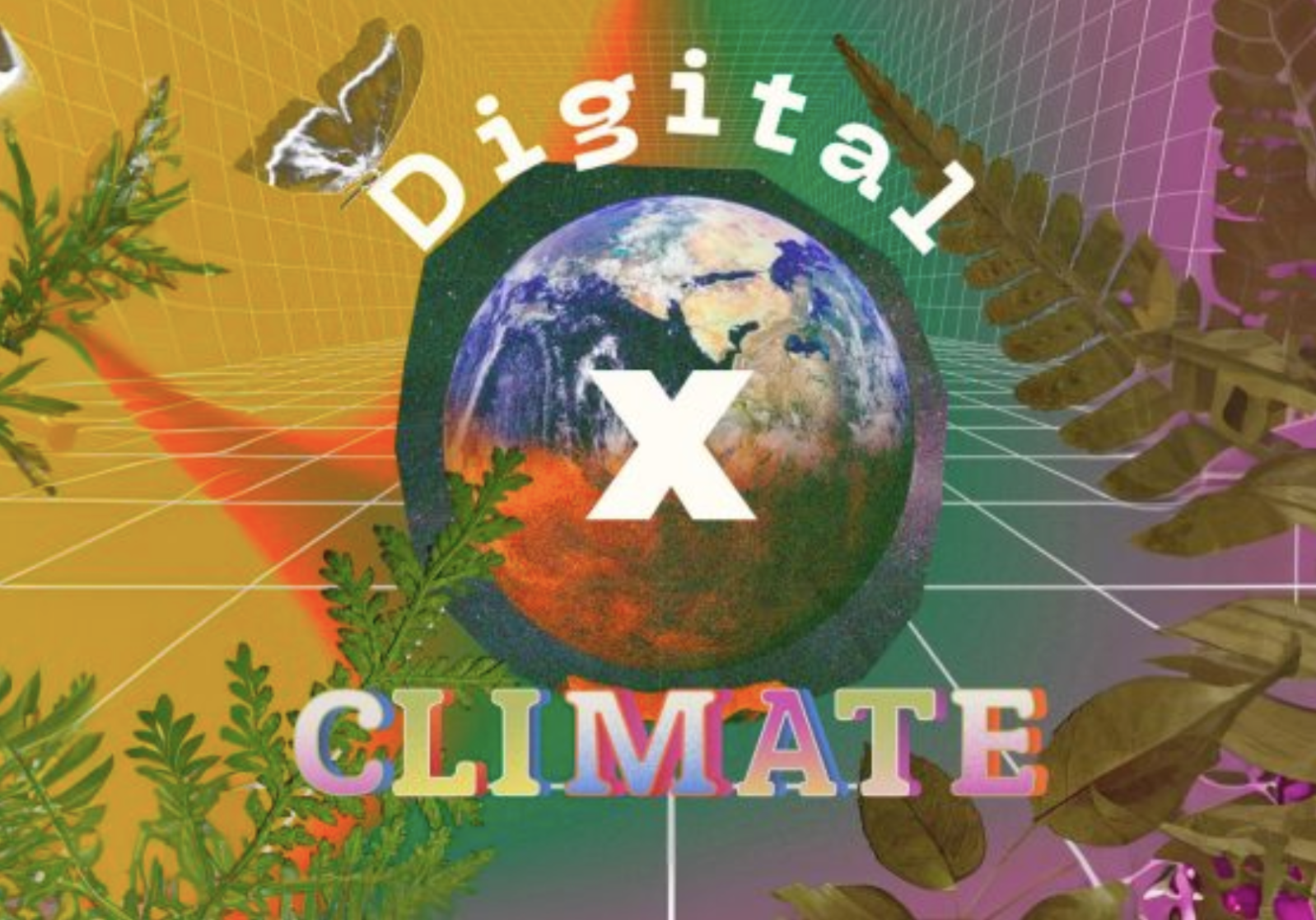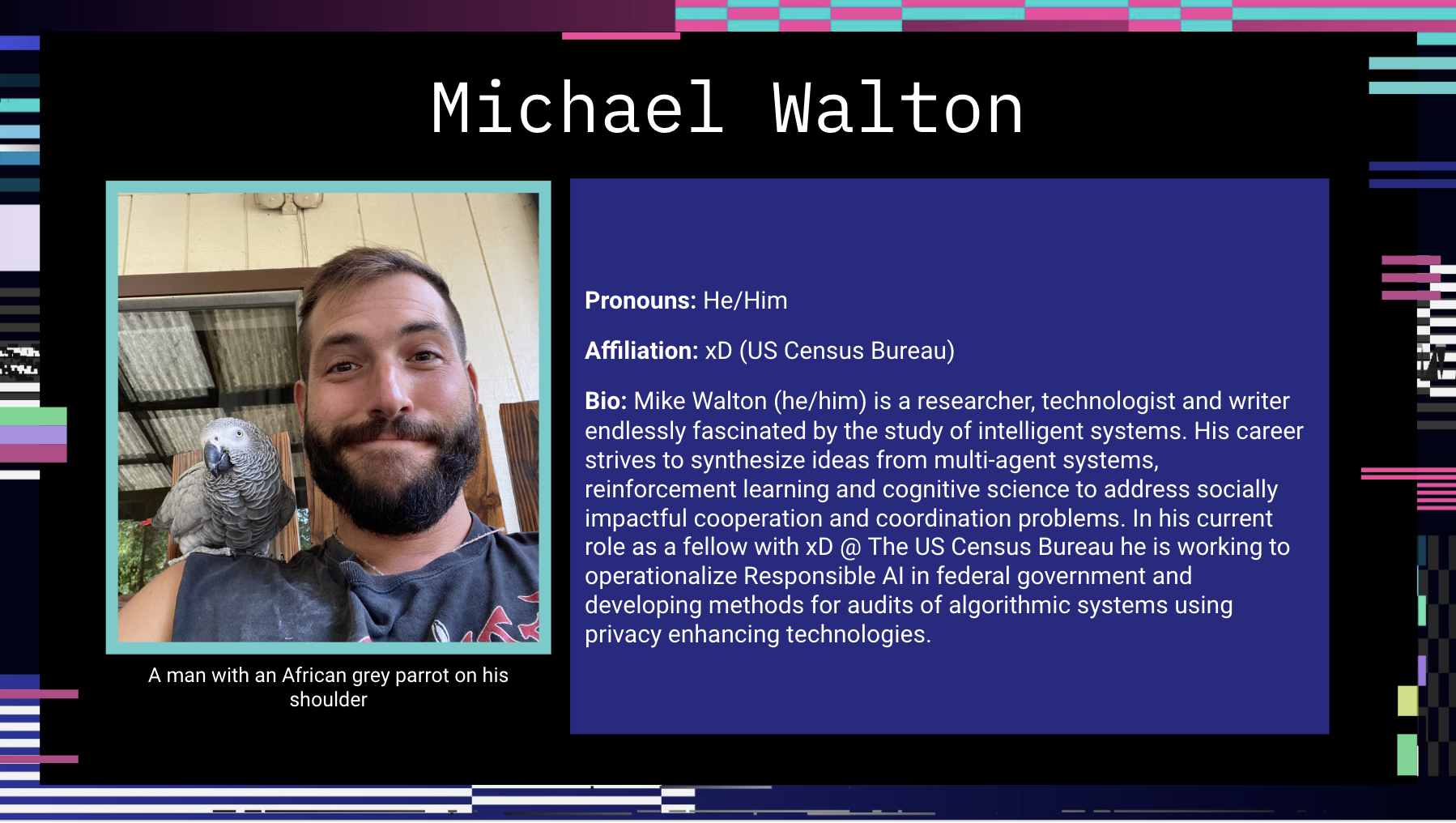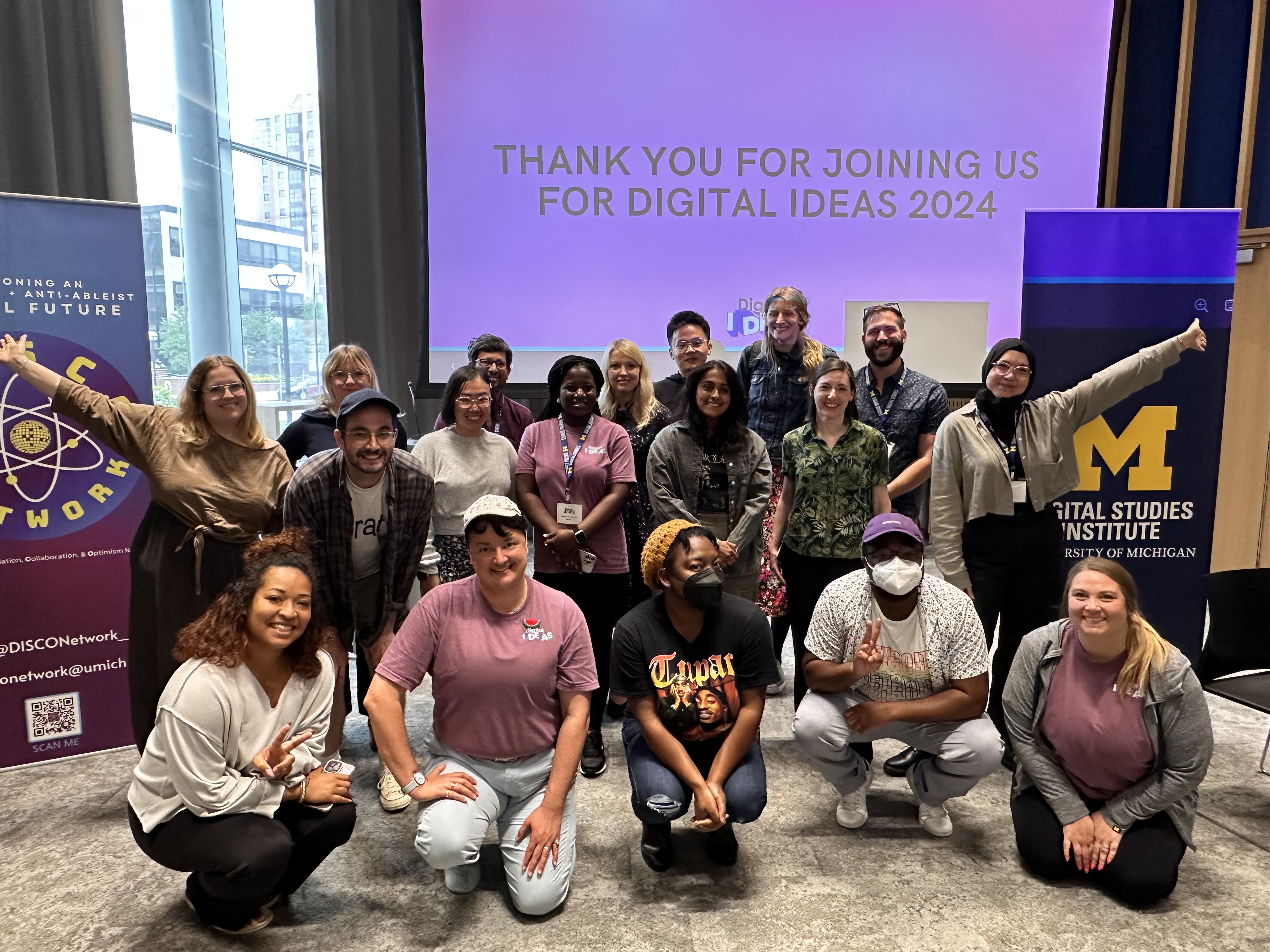I gave a presentation at University of Michigan’s Digital IDEAS Summer Institute titled Reweaving “AI”
This work explored how material and data extraction has been sustained through corporate capture of regulatory activities and how popular narrative discourses surrounding these technologies has constrained broader publics’ ability to imagine alternative futures. I closed with a discussion on methodology from participatory & speculative design as a potential path forward (to “Reweave AI”) towards tools for co-liberation. Other members of my work stream provided insightful critical feedback and generously shared references that have already proved helpful in further developing these ideas.

It was a pleasure and a privilege to be selected as a member of the University of Michigan Digital Studies Institute 2024 Cohort of the Digital IDEAS (Inclusion, Diversity, Equity, Access, Success) Summer Institute. The cohort this year included a diversity of US and international scholars, alt-ac practitioners, artists and activists. Over the course of two weeks, we attended keynote lectures, panel discussions and participated in methodology workshops & group discussions.

Some of my favorite talks included Wendy Chun’s How Are You?: Sentiment & Surveillance which explored alienation and disaffection on social media and Anna Watkins Fisher’s It’s All Good: Indifferent Positivity in the Era of Climate Change which described how embedding indifferent positivity in the semiotics of social platform design has scaled a mentality of corporate public relations detached from scientific realities.
After her excellent talk on AI x Environmental Justice I asked Jennifer Gabrys what she thought the role of structurally powerful actors (standards bodies, governments etc.) should be in facilitating meaningful participation & accountability in the design of sociotechnical systems (as this question has been top-of-mind for me for over a year now).
Always ask of systems: Who does this serve? — Jennifer Gabrys
She provided an illuminating response that there is no formula for “getting this right” and thus we must remain vigilantly critical. She further cautioned that structurally powerful actors must remain aware that (in the worst case) advertising affordances for contribution can make enemies of publics: reductions to PR consultations & “box ticking” exercises causes communities to become more enraged from the slight-of-hand.
I left Ann Arbor with a full reading list and an even fuller heart. Thank you to my fellow cohort members, the faculty and staff at DSI for organizing such a spectacular event!
